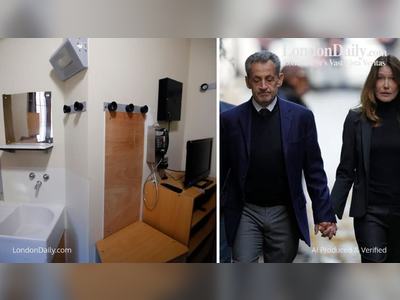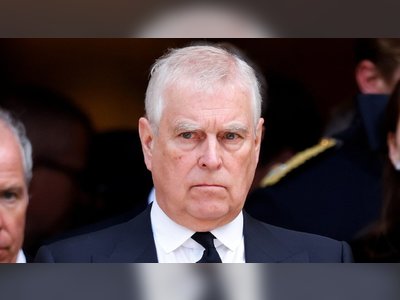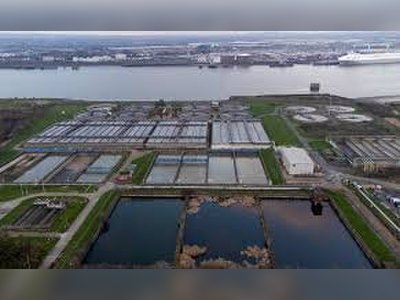US and Qatar Warn EU of Trade and Energy Risks from Tough Climate Regulation
Washington and Doha jointly caution that the EU’s new corporate-sustainability law could undermine investment and liquefied natural gas supplies
The United States and Qatar have issued a joint warning to the European Union that a sweeping new EU corporate-sustainability law could jeopardise trade, investment and energy supplies.
In a letter addressed to EU leaders, the energy ministers of both countries described the Corporate Sustainability Due Diligence Directive (CSDDD) as an existential threat to the growth, competitiveness and resilience of the European economy and to its energy security.
The CSDDD, set to begin phasing in from 2027, empowers EU member states to fine companies — including non-EU firms with significant EU operations — up to five per cent of their global turnover for failing to address environmental, climate or human-rights issues in their supply chains.
Qatar, one of Europe’s largest suppliers of liquefied natural gas (LNG), warned in a separate letter to Belgium that the new regime is incompatible with its business model and that it may redirect its LNG exports away from the EU if its concerns are not addressed.
The United States also pressed its case in the joint missive, emphasising that the directive’s extraterritorial scope threatens investment flows, supply-chain dynamics and bilateral trade – including the landmark agreement reached in July in which the US pledged some 750 billion dollars of energy exports to the EU.
The two countries contend that the CSDDD will impair the reliability of LNG supplies just as the EU seeks to wean itself off Russian gas and diversify sources.
According to the letter, the EU currently obtains around sixteen per cent of its gas from the US and about four per cent from Qatar.
In Qatar’s case, the energy minister, who is also chief executive of the state-owned energy company, asserted that the directive’s requirement for a climate-transition plan aligned with the Paris Agreement goal of limiting warming to 1.5 degrees Celsius is unworkable for QatarEnergy, which is not aiming for net-zero in the near term.
Doha also said that the EU’s recent proposals to ease the CSDDD – including a delay to mid-2028 and fewer supply-chain checks – still fall short of its demands.
The EU, for its part, is engaged in negotiations between member-states and the European Parliament over amendments to the directive.
Some European energy ministers have expressed concern that the rules may hinder the bloc’s ability to attract investment and secure energy supply, particularly given its decision to phase out the remaining nineteen per cent of Russian-gas imports by the end of 2027.
The warning from Washington and Doha marks a rare alignment of two major energy-exporting nations pressing Brussels to recalibrate its legislation.
They argue the regulation could not only disrupt existing long-term contracts but also hamper future trade and energy co-operation.
On the energy front, the EU has ramped up LNG imports in the wake of Russia’s full-scale invasion of Ukraine in 2022, leaving it increasingly reliant on global suppliers.
For the EU, the move presents a complex policy challenge: balancing its ambition to lead on climate and human-rights compliance through the Green Deal, while maintaining the energy and investment partnerships needed to underpin economic growth and stability.
The US-Qatar intervention suggests that the bloc may face difficult trade-offs if it proceeds with the directive in its current form.
In a letter addressed to EU leaders, the energy ministers of both countries described the Corporate Sustainability Due Diligence Directive (CSDDD) as an existential threat to the growth, competitiveness and resilience of the European economy and to its energy security.
The CSDDD, set to begin phasing in from 2027, empowers EU member states to fine companies — including non-EU firms with significant EU operations — up to five per cent of their global turnover for failing to address environmental, climate or human-rights issues in their supply chains.
Qatar, one of Europe’s largest suppliers of liquefied natural gas (LNG), warned in a separate letter to Belgium that the new regime is incompatible with its business model and that it may redirect its LNG exports away from the EU if its concerns are not addressed.
The United States also pressed its case in the joint missive, emphasising that the directive’s extraterritorial scope threatens investment flows, supply-chain dynamics and bilateral trade – including the landmark agreement reached in July in which the US pledged some 750 billion dollars of energy exports to the EU.
The two countries contend that the CSDDD will impair the reliability of LNG supplies just as the EU seeks to wean itself off Russian gas and diversify sources.
According to the letter, the EU currently obtains around sixteen per cent of its gas from the US and about four per cent from Qatar.
In Qatar’s case, the energy minister, who is also chief executive of the state-owned energy company, asserted that the directive’s requirement for a climate-transition plan aligned with the Paris Agreement goal of limiting warming to 1.5 degrees Celsius is unworkable for QatarEnergy, which is not aiming for net-zero in the near term.
Doha also said that the EU’s recent proposals to ease the CSDDD – including a delay to mid-2028 and fewer supply-chain checks – still fall short of its demands.
The EU, for its part, is engaged in negotiations between member-states and the European Parliament over amendments to the directive.
Some European energy ministers have expressed concern that the rules may hinder the bloc’s ability to attract investment and secure energy supply, particularly given its decision to phase out the remaining nineteen per cent of Russian-gas imports by the end of 2027.
The warning from Washington and Doha marks a rare alignment of two major energy-exporting nations pressing Brussels to recalibrate its legislation.
They argue the regulation could not only disrupt existing long-term contracts but also hamper future trade and energy co-operation.
On the energy front, the EU has ramped up LNG imports in the wake of Russia’s full-scale invasion of Ukraine in 2022, leaving it increasingly reliant on global suppliers.
For the EU, the move presents a complex policy challenge: balancing its ambition to lead on climate and human-rights compliance through the Green Deal, while maintaining the energy and investment partnerships needed to underpin economic growth and stability.
The US-Qatar intervention suggests that the bloc may face difficult trade-offs if it proceeds with the directive in its current form.









